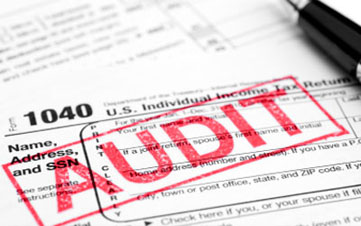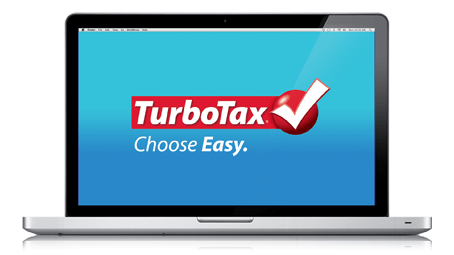The UNKNOWN Tax Ramifications For Uber, Lyft, and Other Rideshare Drivers
*Disclaimer: The following is a simplified explanation of the tax issues/terms involved for easier retention. For a more technical and thorough account, contact your local tax attorney or expert.
With the advent of Rideshare mobile companies, many motivated individuals see this as a great opportunity to make some extra cash on the side or so it seems. Rideshare mobile companies such  as Uber, Lyft and others similar allow drivers to be self-employed/independent contractors and deliver a taxi service with their own vehicles. This is a great way to make money in major metropolitan areas such as New York, Los Angeles, Chicago, San Francisco, etc.
as Uber, Lyft and others similar allow drivers to be self-employed/independent contractors and deliver a taxi service with their own vehicles. This is a great way to make money in major metropolitan areas such as New York, Los Angeles, Chicago, San Francisco, etc.
There are many benefits these companies provide such as a flexible work schedule and fast cash. However, as a self-employed individual/independent contractor, there are many tax ramifications of which most drivers are not aware. As an independent contractor of these Rideshare companies, drivers are not treated as employees of these companies. Therefore, drivers are issued 1099 Tax Forms instead of the traditional W-2 Tax Forms at the end of the year. This puts the tax and accounting responsibilities on the drivers who often are not well-versed in tax laws and regulations.
Not understanding the tax and accounting responsibilities will greatly affect these drivers financially. Most drivers will not realize this until it is time to do their tax returns the next year in April. The following are some issues that will surface for many of these drivers:
The first tax issue is the responsibility to pay Estimated Tax Payments (ETPs) which, in most cases, are due on a quarterly basis throughout the year. Failure to do so will result in penalties levied by the Internal Revenue Service (IRS) which could be substantial depending on the amount of the self-employed/independent contractor’s income. In other words, the more the person makes the more he or she will be penalized for not pre-paying the ETPs. I have personally seen failure to pre-pay ETPs penalties range from $500 to $2,000.
The second tax issue is the duty to keep track of business-related expenses. Common business-related expenses for Rideshare drivers include vehicle gas, highway tolls, insurance, registration, and general vehicle maintenance expenses. General maintenance can consist of oil changes, tire replacements, battery replacements, etc. These expenses are all tax deductible. However, a strict accounting of them is required while filing taxes and/or defending an IRS tax audit. When 1099 Tax Forms are issued the amount reported  are gross receipts (similar to gross income) and do not take into account the expenses incurred to generate the gross receipts. These expenses are tax deductible and should not be taxed as income. To better explain this, take this for example, a Rideshare driver picks up a customer and drives the person 10 miles and is paid $20 after the Rideshare companies’ commission. A portion of the $20 goes towards paying gas, insurance and other expenses needed to deliver the taxi service also. As a result, the $20 that is earned is not truly $20 because there are business-expenses for which are not accounted. When issued a 1099 Tax Form at the end of the year, these tax deductible expenses are not subtracted from the gross receipts. It is the driver’s responsibility to properly deduct the business-expenses incurred to generate the income. If not properly documented, the IRS can disallow the deductions and put the burden on the driver to prove them. This scenario results in the driver being taxed for $20 worth of income when the actual net (take home) amount might only be $12-$15.
are gross receipts (similar to gross income) and do not take into account the expenses incurred to generate the gross receipts. These expenses are tax deductible and should not be taxed as income. To better explain this, take this for example, a Rideshare driver picks up a customer and drives the person 10 miles and is paid $20 after the Rideshare companies’ commission. A portion of the $20 goes towards paying gas, insurance and other expenses needed to deliver the taxi service also. As a result, the $20 that is earned is not truly $20 because there are business-expenses for which are not accounted. When issued a 1099 Tax Form at the end of the year, these tax deductible expenses are not subtracted from the gross receipts. It is the driver’s responsibility to properly deduct the business-expenses incurred to generate the income. If not properly documented, the IRS can disallow the deductions and put the burden on the driver to prove them. This scenario results in the driver being taxed for $20 worth of income when the actual net (take home) amount might only be $12-$15.
The last tax issue is a requirement to file more complex tax returns. The typical 1040 or 1040-EZ are not available for drivers whose self-employment income exceeds $400 – $500 which varies from year to year and is set by Congress annually. With business expenses, the standard deduction given are not a fair representation of the actual  expenses incurred. Therefore, most drivers will have to itemize their deductions to get all the business expenses included. The cost of a complicated tax return is more substantial. The “do-it-yourself” tax preparation softwares like Turbotax or Taxact would not be advised because of the difficulty of the return. Therefore, instead of using a software, a tax professional would often be needed to insure accuracy and minimize the actual amount of tax paid by the driver. Many tax preparation businesses are charging $250-$500 for these more complicated tax returns.
expenses incurred. Therefore, most drivers will have to itemize their deductions to get all the business expenses included. The cost of a complicated tax return is more substantial. The “do-it-yourself” tax preparation softwares like Turbotax or Taxact would not be advised because of the difficulty of the return. Therefore, instead of using a software, a tax professional would often be needed to insure accuracy and minimize the actual amount of tax paid by the driver. Many tax preparation businesses are charging $250-$500 for these more complicated tax returns.
Consequently, Rideshare drivers must be aware of the tax issues that are created and take steps to prevent further problems. I have seen in my work many parties financially harmed by their lack of knowledge of tax laws and regulations. Self-employed/independent contractors are honest hardworking Americas who often need tax compliance advice. Failure to understand tax compliance has a snowball effect with the interest and penalties the IRS assess against these parties. In order to avoid the aforementioned ramifications, make sure you contact a local tax attorney or tax expert to help you take control of the situation. It will likely save you more money in the end.
By Attorney-at-Law (Colin) Kha T. Nguyen, Esq.